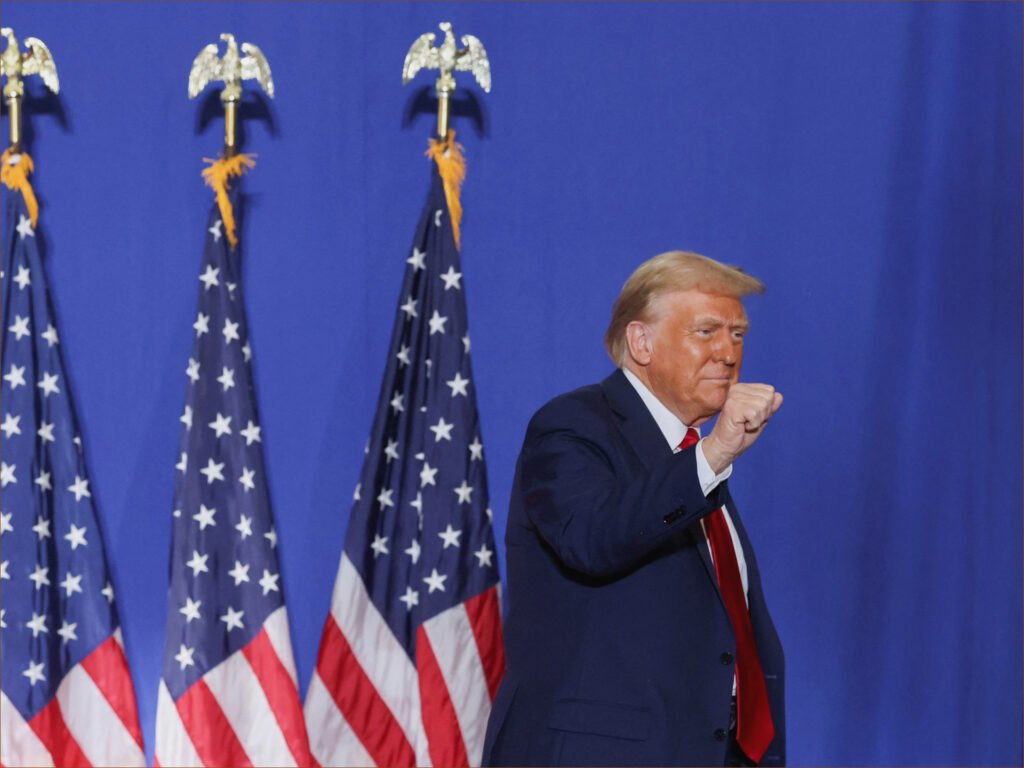In a stunning manifestation of political upheaval, Donald Trump’s triumphant return to the presidency has sent ripples of anxiety through global corridors of power. Following a turbulent electoral battle rife with his iconic incendiary rhetoric, Trump emerged victorious, as heralded by the Associated Press in the wake of the announcement Wednesday morning. This victory resurrects the specter of Trump’s controversial first term, following his ousting at the hands of Joe Biden four years prior.
On the campaign trail, Trump unfurled a veritable tapestry of promises, aiming to tackle pressing domestic dilemmas like immigration and inflation—issues that resonate deeply across a nation fraught with discontent. But it didn’t stop there; he proposed a hard pivot back to his emblematic “America First” foreign policy, signaling a departure from collaborative internationalism towards a stance steeped in isolationism.
Yet, amid grand proclamations promising to quell Russia’s Ukrainian aggression “within 24 hours” of reclaiming office and restore Middle East peace, skepticism pervades. Critics warn that a chasm gapes between Trump’s lofty assertions and the pragmatic hurdles of governance, illustrating the widening gulf between rhetoric and reality. Observers fear that his proposed foreign policy could amplify existing global crises, impacting everything from climate change to ongoing conflicts in Gaza and Lebanon.
The stakes are alarmingly high, with Trump’s administration expected to reverberate through major international issues. His first term was characterized by unwavering support for Israel, a relationship that Israeli Prime Minister Benjamin Netanyahu exalted, calling Trump “Israel’s best friend.” This was marked by contentious actions, such as relocating the US embassy from Tel Aviv to Jerusalem and endorsing Israel’s claim over the Golan Heights. Does Trump’s return signal heightened volatility in the embattled Middle East, as tensions simmer dangerously close to the boiling point?
As for Iran, Trump’s record is quintessentially aggressive—he unilaterally withdrew from the 2015 nuclear deal and issued economic strangulations that devastate Tehran’s economy. His administration’s shadow looms large over security dynamics in the region, raising alarms about nuclear proliferation as hawkish voices in Congress fuel a firestorm for militarized solutions against Iran.
With regards to Ukraine and Russia, Trump boasts of an ability to broker peace swiftly, suggesting that a candid sit-down with leaders from both nations could eradicate the war instantaneously. Nevertheless, this cavalier dismissal glosses over the intricate geopolitical tensions at play. Analysts speculate whether Trump might betray Ukraine’s interests for the sake of a stitched-together peace deal favoring Putin—a troubling prospect for European allies.
In the arena of U.S.-China relations, an ongoing power struggle could escalate, with Trump pledging to sustain a hardline tariff policy—arguably his signature economic strategy. His blunt relationship with China’s Xi Jinping raises questions: will Trump’s proclivity for assertiveness yield stability, or fuel further confrontation in a rapidly evolving geopolitical chess game?
Finally, in the realm of global cooperation and multilateralism, Trump’s disdain for institutions like NATO and the United Nations could disrupt long-established diplomatic frameworks. His prior retreat from agreements like the Paris Climate Accord leaves a legacy of skepticism regarding the U.S. commitment to collective global goals.
As the world watches with bated breath, the implications of a Trump presidency are immense, suggesting not just a return to the policies of yesteryear but potentially a recalibration of international relations across the board. The echoes of his infamous unpredictability linger, promising yet another chapter fraught with uncertainty for both allies and adversaries alike.

